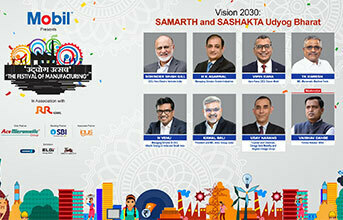
Another thing that Narang suggested was to focus on setting up manufacturing facilities in rural areas. He says that these facilities don't need to be only in the big cities. "We should look at locations such as Jharkhand, UP, rural Karnataka, Tamil Nadu etc. The next 10 years or the next two decades belong to us. I think we should stop complaining, do hard work and stop asking the government for a handout on everything," he added.
On developing India as manufacturing hub, Bali said, "India needs to be a manufacturing hub as we don't have an option. We have 1.4 billion people to feed; we need to be self-reliant. We need to create 90 million more jobs by 2030 and just services and agriculture cannot do it alone." He further stated that it is essential to look at manufacturing in a big way, as far as rebalancing of the global value chain is concerned, thanks to COVID.
"Almost 4 trillion dollars of manufacturing is moving out of certain geographies today. Therefore 20 per cent of the shift happens towards India. Out of $4 trillion, our manufacturing which is about $400 billion today, will go to $1.2 trillion and in another two to three years' time, it will surely touch a $5 trillion economy. You will be exactly 25 per cent of GDP. So, as I look at the things, they are looking very well in terms of the whole setting and dynamics at the macro level."
At the micro level, he pointed out three aspects. To begin with, "we need to look at achieving excellence in manufacturing through three buckets. The first bucket involves the domestic ecosystem, the second bucket is firm-level capacity and competitiveness, and the third bucket is the global ecosystem," said Bali.
He further noted that it is important to closely look at the domestic ecosystem. By this, "I mean ease of doing business, the cost of doing business, the speed of doing business, lack of Inspector Raj, among others. I think all of these must fit into the first bucket where we create a domestic ecosystem in terms of policies, infrastructure reforms which help the manufacturing." He further stated that the second part is critical and the most important one, as it involves the need for quality and Innovation. "I will add one more thing to it, which is partnerships because no one company can do the 360 degrees of what the customer wants. You will need more and more partnerships and collaborations to be able to do the 360 degrees," he added.
Along with culture, quality, and ecosystem, Bali also included competitiveness and MSME's as a part of the second bucket. The third piece according to him is the global ecosystem because manufacturing needs volumes and economies of scale. "If we tick these three boxes, I'm sure we will be there and soon India will be the Manufacturing Powerhouse of the world," he concluded.


























